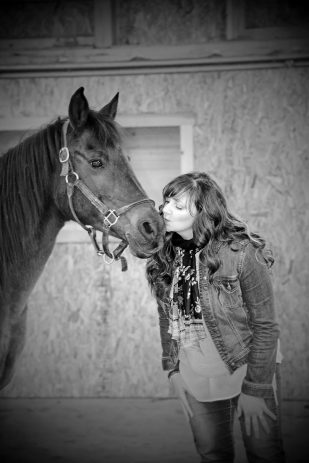Art helps equine therapy organization improve mental health
by Dan Holland
As part of Mental Health Awareness Month, Hope Meadows, a non-profit faith-based organization headquartered in Independence, presented special events during May. An art contest offered a chance for people to express themselves relative to ways the COVID-19 pandemic has affected their lives, according to executive director Michelle Togliatti.
“The art contest came about because we were talking about how people have so much to say but don’t really know how to express themselves,” she said. “Everyone has experienced COVID similarly; we all faced the same challenges, but uniquely as well. And everyone’s lives changed as a result of this. Kids, in particular, have a really hard time expressing that. So, we thought we would give everyone a platform in which they can express themselves in an artistic way.”
Hope Meadows is partnering with Southpark Mall in Strongsville to display the art entries, which will also be featured on the group’s website. The events give the organization an opportunity to share information about its unique treatment programs. Hope Meadows operates equine centers in Bath, Columbia Station and Richfield.
We are a mental health organization. We deal with kids and adults alike that may have any sort of emotional or mental disorder, such as depression, anxiety, an eating disorder or other conditions. Most of the work we do is on the ground, so there is no riding involved,” Togliatti said.
Togliatti said the horses often mirror what a patient is feeling inside, making for a more accurate diagnosis and treatment. Treatments can be done individually or in a group setting.
“It’s a safer space for people to process what’s happening to them,” she said. “As a treatment team, we get a very unique perspective into what’s happening with the client just by watching the behavior of the horses. We’re able to ask questions that maybe aren’t being addressed. But we can ask them through the horses, and the client feels safer going there, because they’re talking about the horse. But in reality, they’re really talking about what’s happening within themselves.”
At-risk youths, victims of human trafficking and police officers are a few categories of patients that have been successfully treated using the treatment method, according to Togliatti.
“Those are examples of just a few of the groups we work with, but the horses are just great teachers for us,” she said. “They reward us when we get it right, and they let us know when we get it wrong. We learn quickly with them.” ∞

